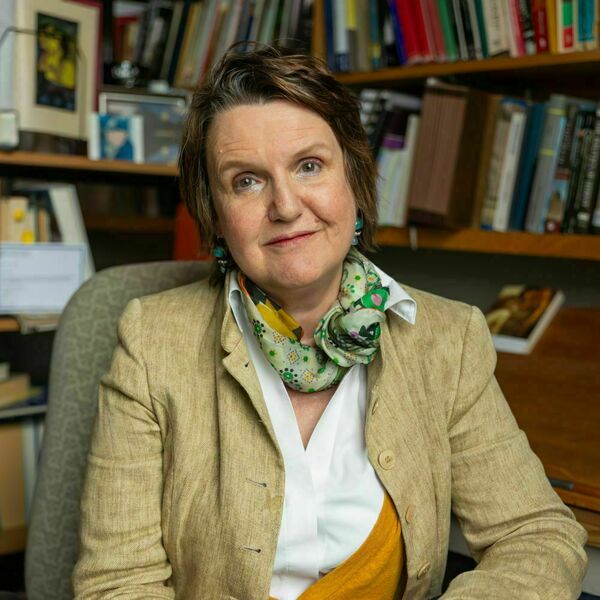
Gretchen Reydams-Schils, professor in the Program of Liberal Studies, director of the Workshop on Ancient Philosophy, and member of the History of Philosophy Forum Faculty Steering Committee is one of three faculty members in the University of Notre Dame’s College of Arts and Letters to have been awarded a 2024 Guggenheim Fellowship in recognition of their career achievements and exceptional research promise.
Reydams-Schils, who has concurrent appointments in classics, philosophy and theology, will seek to retrieve aspects of human perfection in antiquity that are empowering and relevant. Her project is titled “‘Becoming like God’: Perfection in Platonism and Stoicism (1c. BCE-2c. CE).”
Few texts have more power to evoke the Platonic view of philosophy than the famous passage from Plato’s Theaetetus that enjoins human beings to become like god as much as possible (172c-177b). If there is one claim which we could squarely put on the side of the Platonist tradition, surely it would be this one. Yet in the wake of Hellenistic philosophy and especially Stoicism, this matter is quite a bit more complex (and philosophically interesting for that reason) in the period covered by this study. Succinctly put, before Plotinus, in the third c. CE, came up with his solution to this problem (which then, with some delay, started to exert an influence on the Christian tradition as well), these authors struggled with the tension between the divine as pure thought, turned inwards into itself and self-contained, and its outward relational or providential mode, as responsible for the structures and order of the universe. This theme, in turn, has far-reaching implications for the kind of human self it presupposes, with (a) the balance, or lack thereof, between the so-called contemplative and the active life, (b) the relations between the different virtues, (c) the notion of justice, and (d) the interaction between soul and body. In dealing with these tensions, the authors of this period (including the Jewish-Greek Philo, Christian writers, and those usually grouped with the Second Sophistic) display a very distinctive combination of Platonic and Stoic elements.
Barbara Montero, a professor of philosophy and Roy Scranton, an associate professor of English and director of the Creative Writing Program and the Environmental Humanities Initiative are also counted among the 188 scholars, scientists and artists chosen from approximately 3,000 applicants for the fellowship. The Guggenheim Foundation awards these fellowships to outstanding scholars in order to add to the educational, literary, artistic and scientific power of the country.
“I am thrilled that three of our faculty members have joined the prestigious ranks of scholars who have had their research supported by the Guggenheim Foundation,” said Sarah Mustillo, the I.A. O’Shaughnessy Dean of the College of Arts and Letters.
“This is a high honor and tremendous recognition of the ambitious, valuable scholarship that is being done by Arts and Letters faculty across our humanities disciplines.”
Guggenheim Foundation President Edward Hirsch said the fellows are meeting head-on the profound existential challenges facing humanity and are “generating new possibilities and pathways across the broader culture.”
Twenty-two Notre Dame faculty members have won Guggenheims in the past 24 years. Other recent awardees include English professor Joyelle McSweeney in 2022 and Pam Wojcik, the Andrew V. Tackes Professor of Film, Television, and Theatre and department chair, in 2020.
Now in its 99th year, the Guggenheim Foundation has granted more than $400 million in fellowships to more than 19,000 people, including 125 Nobel laureates and winners of the Pulitzer Prize and National Book Award.
The College of Arts and Letters’ Institute for Scholarship in the Liberal Arts offers support to faculty across the arts, humanities and social sciences in applying for major national and international fellowships, including the Guggenheim.
“The Guggenheim Fellowship is a very highly prestigious honor that represents a major achievement for these faculty members,” said Josh Tychonievich, ISLA’s associate director for research development. “Only about 6 percent of applicants in a given year are awarded a fellowship. That three of these fellowships were awarded in Arts and Letters attests not only to our outstanding faculty but also to the strong research culture of the college.”
Modified from an article originally published by at news.nd.edu on April 12, 2024.